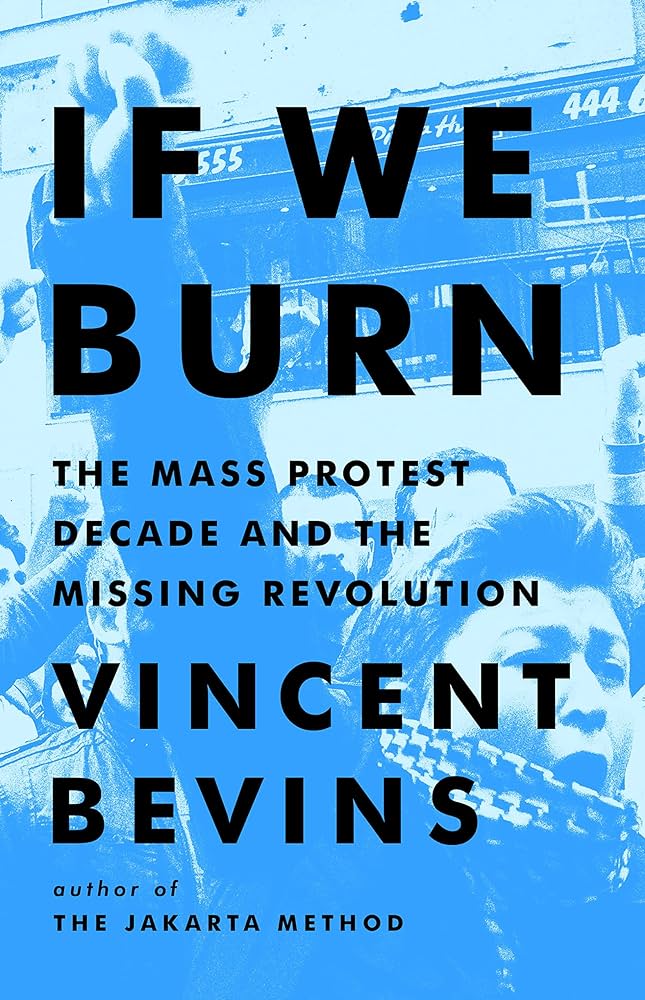“If we burn” – a short review

I recently read Vincent Bevins’ “If We Burn” (2023), which gives an impressive overview of the many mass mobilisations and uprisings that emerged across the world during the past decade (2010-2020). It raises the question why most of these movements eventually “led to the opposite of what they asked for”.
The book has strong merits: it is largely interview-based and focuses on often-neglected movements in the Global South (Egypt, Brazil, Chile, South-Korea, Hong Kong, etc.). Bevins gives two explanations for what he perceives as their eventual failure. But both leave me a bit unsatisfied.
First, he argues that these movements (and the people/organisations behind them) often lacked a clear plan or road map for how to proceed after the revolution. This means that they often merely created a vacuum that allowed others to step in and appropriate and/or neutralise its potential. In itself, this is valid critique. But I wonder if these recent uprisings were so exceptional in this respect. Arguably, no grand historical revolution was the product of a coherent, pre-set plan. They always created opportunities for others to step in and their stories could only be told afterwards.
Second, what characterizes many of these movements according to Bevins, is that they eschewed any form of political representation. They insisted on telling their own story. However, recent scholarship has already nuanced this widespread image to some degree. As always, these movements were rather diverse as they resulted from coalitions between different organisations and individuals. Some of these were more dismissive of (electoral-)representative democracy than others. But it could be argued that they proposed *different* kinds of representation.
Finally, at the very last page Bevins admits that although the outcomes of a revolutionary event do matter, they can never entirely determine its meaning or value to those involved in it. This is an essential insight that relativizes the book’s central claims, but it merely comes as an afterthought.
Mathijs van de Sande
(This article was published first on Todon as a thread.)
